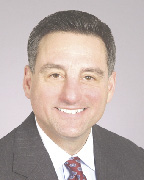Part 1 appeared in the February 13th edition of the New England Real Estate Journal in the Appraisal & Consulting section.
Birth Rate
New England birth rate fell by more than a third after the baby boomers were born but then rose slowly thereafter. Since 2000, New England has grown 9% or 1.5% annually but it has been flat in Mass. over the last six years. The story is more complex than just blaming it on the housing prices. The real reason is answered back 20-30 years ago when the U.S. had a very distinct decline in the birth rate. From 1974-78, the birth rate started to grow in New England which will help the region but not until 2012 (when these kids hit 30-35 and start earning higher income). We have offset our New England decline more than other regions in the U.S. with an influx of students from a high number of existing colleges. With migration, it has been a "wash" in terms of attrition. Other regions have grown due to New Englanders leaving for other parts of the U.S. But on the other hand, New England also takes students from other states as college kids who are living here.
Taxes, Fees and Charges by State Per Person Ratio
New Hampshire has the lowest cost with zero and Mass. is surprisingly one of the least expensive states but it doesn't mean Mass. should raise taxes. Other states have municipal costs, court fees, hospital and state college fees that are added to this statistic.
However on the business tax and fee side of the equation, in 2007 Mass. was 36th or 38th state from the lowest. Mass. sales taxes are ranked low but corporate taxes are high. As compared to other New England states, personal income tax is not as much of an issue as people make it out to be because Conn., Maine and Vermont are high. Taxes are less of an issue if it doesn't change and stays stable so people can have the ability to adjust and absorb it.
Conclusion
The problems of the present economy will be high as the U.S. has delayed too long the re-building of the nation's infrastructure. Now future generations will have to probably pay for the forthcoming government spending. The tax stimulus will be good for small businesses in New England. Inflation in the U.S. in the years ahead may be a bigger concern based on the U.S. debt in the next 2-4 years. Federal interest rates are low and conventional thinking is that the interest rates will remain low for the next several quarters. 30-year Treasuries will continue to come down slowly. Then in 4-5 years we will in a new frontier. The Feds will have to be delicate in raising interest rates later and avoiding inflation. Conventional wisdom is also that unemployment will be in the high 8% range.
Our chapter would like to thank Bill Norton and Emmet Logue for organizing this event.
Robert Nahigian FRICS, CRE, is the 2009 CRE chairman and president of Auburndale Realty, Co., Newton, Mass.
2009 Calendar of Events
March 29-31:
CRE National Convention, NYC
October 11-13:
CRE National Convention, New Orleans
December 16:
Algonquin Club, Holiday Evening Reception, Boston
For more information visit
www.cre.org
Tags:









